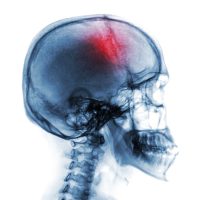Stroke A Leading Cause Of Long-Term Disability In Florida

Most of us know at least one person who suffered a stroke. It may have happened to a coworker, close friend, or family member. Strokes occur when underlying causes impact the flow of blood to the brain. Recovery can be a long process and symptoms suffered by stroke victims often result in long-term disabilities in Florida. Our Jacksonville long-term disability lawyer explains more about why strokes happen, common warning signs, and benefits you may be entitled to.
What Is A Stroke?
According to the Centers for Disease Control and Prevention (CDC), strokes are a leading cause of long-term disability in the United States. They impact close to 800,000 people each year and are responsible for one out of every six deaths.
A stroke happens due to blocked blood flow in the brain. The CDC states that this can cause parts of the brain to get seriously damaged or even die. This can impact the victim’s ability to talk while causing a host of physical, cognitive, and emotional impairments. There are three types of strokes that can cause long-term disabilities in Florida:
- Ischemic stroke: This is the most common type of stroke and happens when blood clots or other particles, such as fatty deposits of plaque due to heart disease, block blood vessels in the brain.
- Hemorrhagic stroke: This is less common and happens when an artery in the brain ruptures or leaks, damaging the surrounding brain cells. High blood pressure and aneurysms are common causes of hemorrhagic strokes.
- Transient ischemic attack (TIA): Often referred to as mini-strokes, these serve as warning signs that a major stroke is in your future and warrant immediate medical care.
Warning Signs Of Stroke And Your Rights To Long-Term Disability
The American Stroke Association advises anyone with high blood pressure or other symptoms of heart disease to be aware of the risks regarding strokes. The acronym F.A.S.T. is a good way to remember the serious warning signs:
- Face-drooping, in which the person’s smile or other features appear different and uneven;
- Arm weakness, which typically impacts one side and causes numbness or difficulty lifting the affected limb;
- Speech difficulty, such as slurred words or being unable to talk;
- The ‘T’ stands for ‘Time to Call Emergency’, as every minute counts in getting stroke victims the medical care they need.
If you suffer any type of stroke or have underlying health issues that put you at high risk, you may be entitled to long-term disability benefits in Florida. These are often available either through your job or by filing a claim for Social Security disability insurance (SSDI).
Our Florida Long-Term Disability Lawyer Is Here To Help
At Farrell Disability Law, we help people who are at risk or have suffered a stroke get the disability benefits they are entitled to. For caring support and comprehensive legal service in filing a claim, call or contact us online and request a consultation with our Florida long-term disability lawyer in our Orlando or Jacksonville office today.
Sources:
cdc.gov/stroke/facts.htm
stroke.org/en/about-stroke/stroke-symptoms
ssa.gov/disability/index.htm









